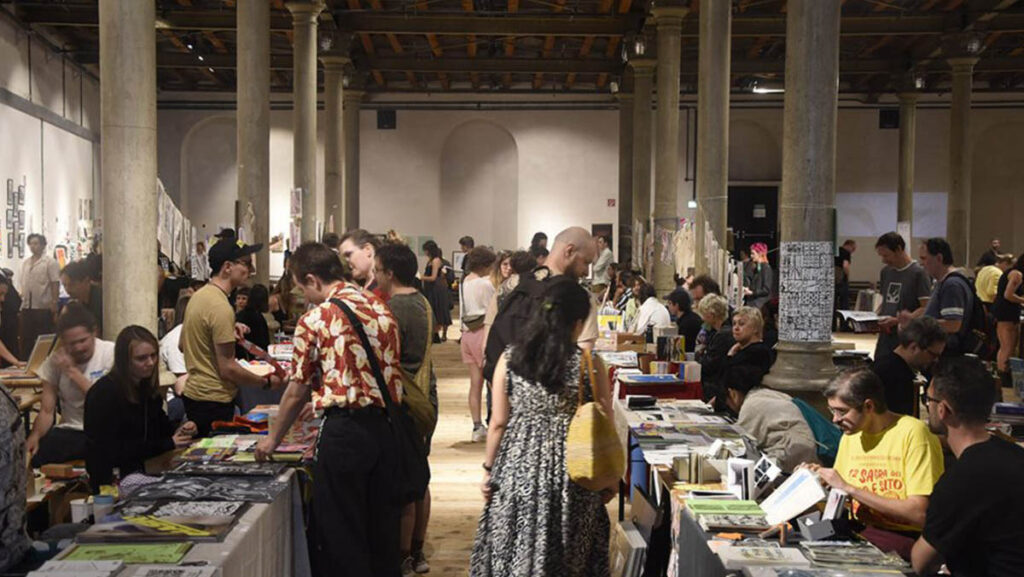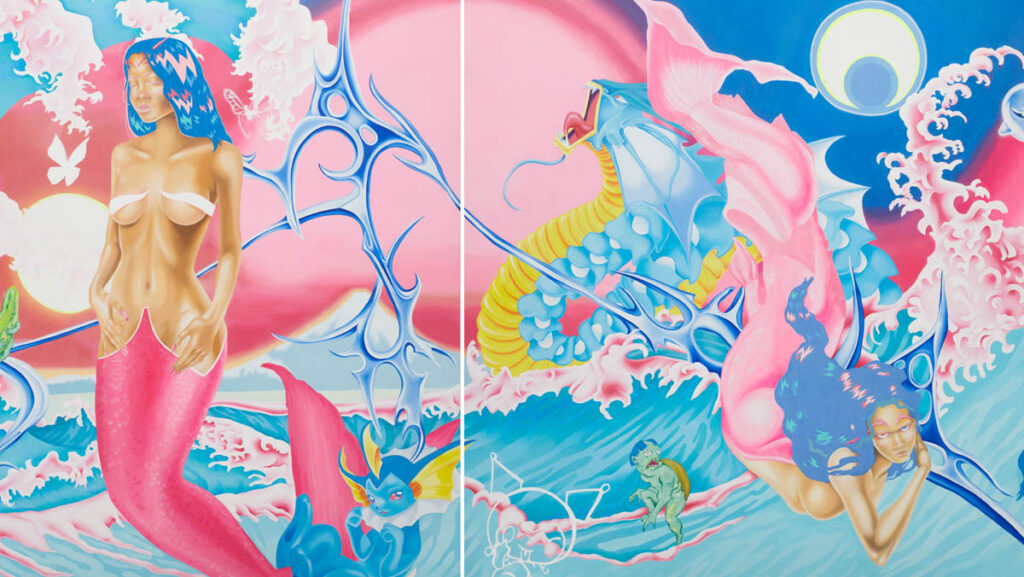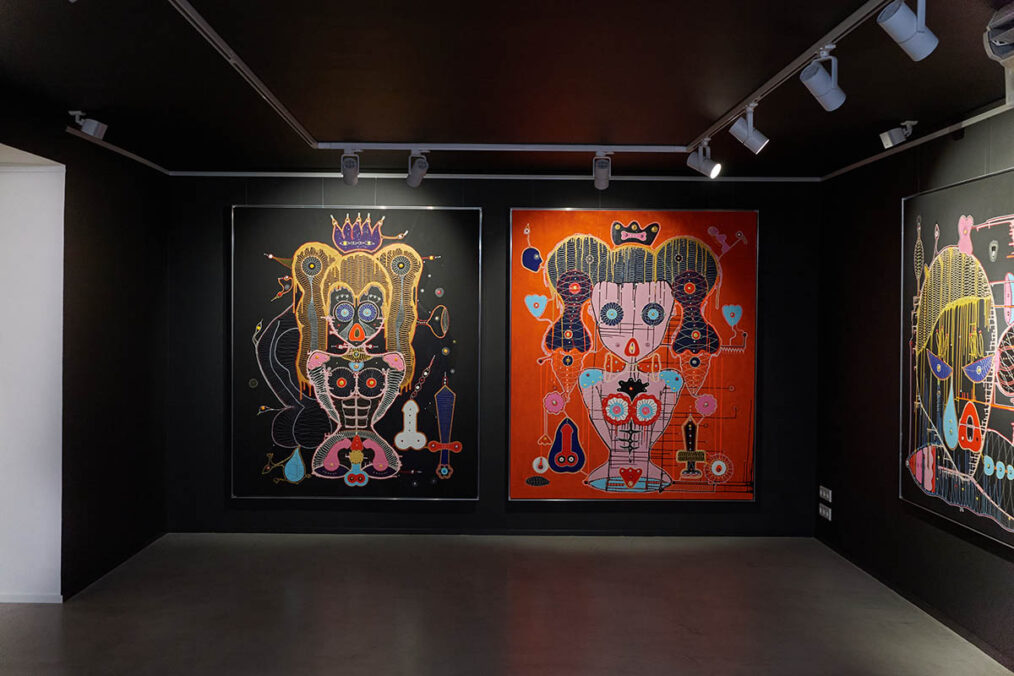
I am in the first district in Spiegelgasse, in front of Gallery Gerald Hartinger. The taxi is approaching, and I can already see Vanessa with her kids inside; they are getting out, and Vanessa just brought some more of her works, the works on paper, and one more painting. We are entering. Vanessa is immediately showing me the painting with two faces that you can rotate on the wall. Dreh mich (Rotate me) 2024 is a painting two meters high, and it depicts a bunny and a bear head connected in one body. That, by rotating, gives two different perceptions. Vanessa’s son is also rotating it and showing me one more, to be sure I got two different stories. On the opposite wall is a painting titled Android Frau Blond, 2023, done in mixed techniques and painted on jute fabric.
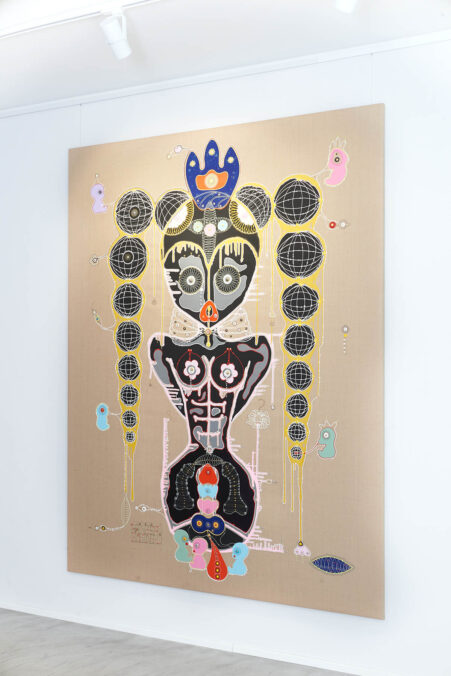
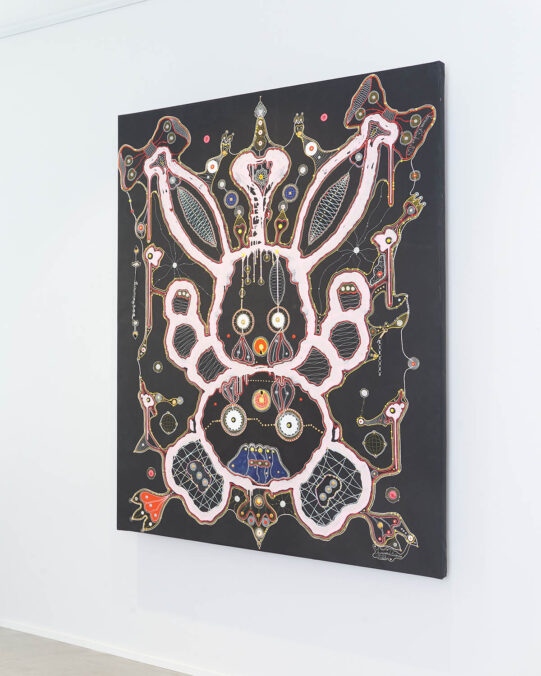
We are heading downstairs with round stairs to the rest of the gallery space. The black walls in a bigger room serve as a good base or background for the huge format paintings and highlight their colors and details. The light is perfectly reflected on the little details in each painting, imitating the jewelry effect. In a small space next to the bar, there are numerous small-scale works, mostly on paper, representing more of a documentation of the process for the large-scale ones.
While having coffee and walking from work to work, we talked in more detail about all the works of Vanessa’s first solo exhibition in Vienna, holding the name Powerful Innocence. Lena Heidrich, representing Gallery Gerald Hartinger, also joined us in expressing her point of view on a collaboration with Vanessa.
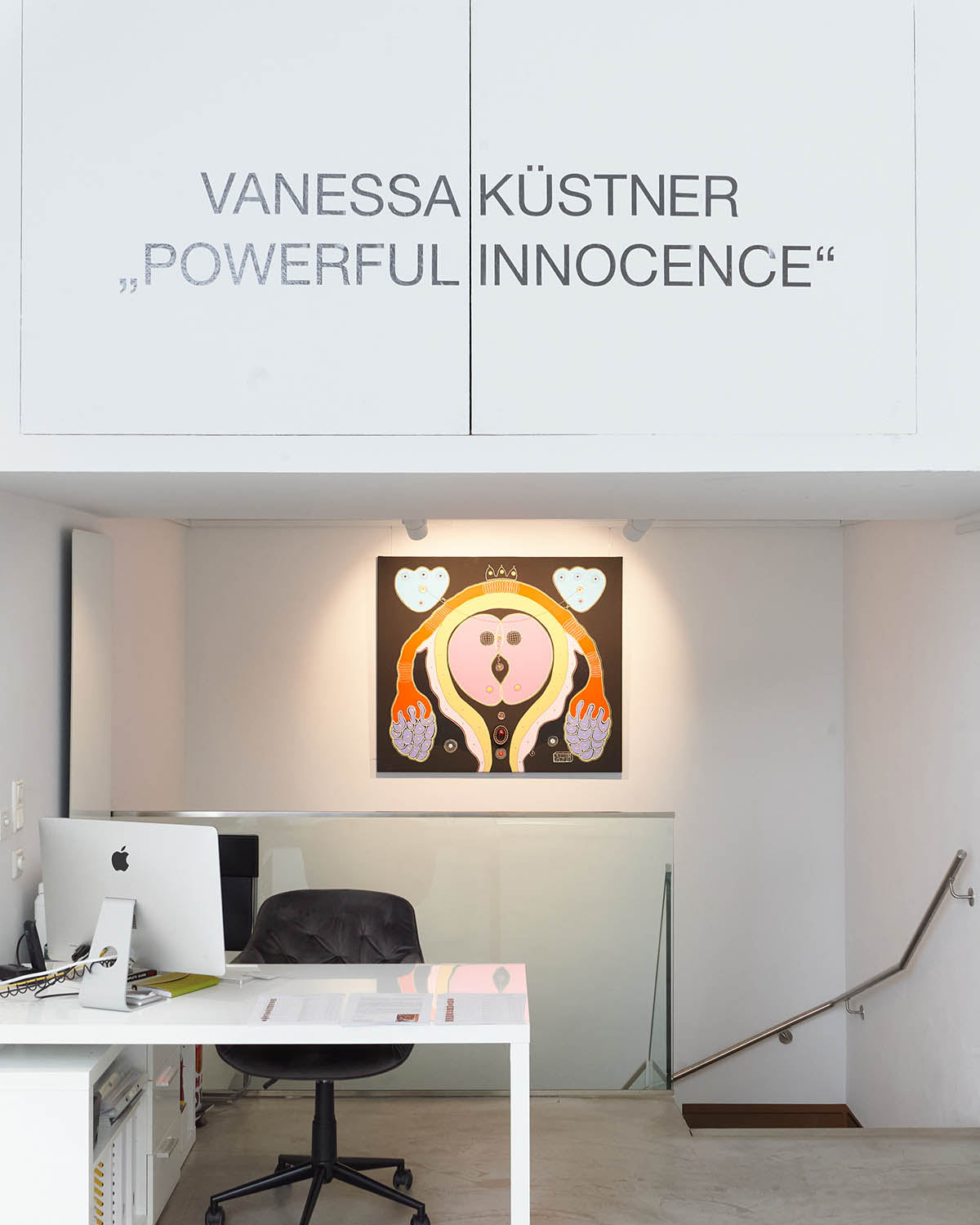
Can you tell us a bit more about the title? And the motives viewers can see in your paintings.
Words of innocence and power contradict each other. Innocence for a lot of people means something naive, and I understand it as a powerful kind of freedom. In the last three years, I have also focused on philosophical theories and ways of thinking during painting, and these thoughts I have placed into painting innocent creatures. What I also like to show in the paintings are powerful women, but still with big eyes, kind of questioning the world. But man, I often paint with different eye shapes that mirror their facial expressions. Female bodies I mostly paint with the accent on the breasts, waist, and hips, so on these “feminine” points. What I also love to play with in my paintings is not only this social interaction between women and men but also the interaction between animals and humans, which I find very important.
Are the paintings of women mostly self-portraits?
Yes, they are kind of, but not on purpose; more happened in the process.
The number three and the symbol of the number three are visible very often in your works.
I found out in my working process that this is something it has repeated so often, like the three dots, or like an abstract heart, and so on, then I was thinking about the meaning behind it, and I guess it is closely connected to my three children and three siblings because they represent pure love for me.
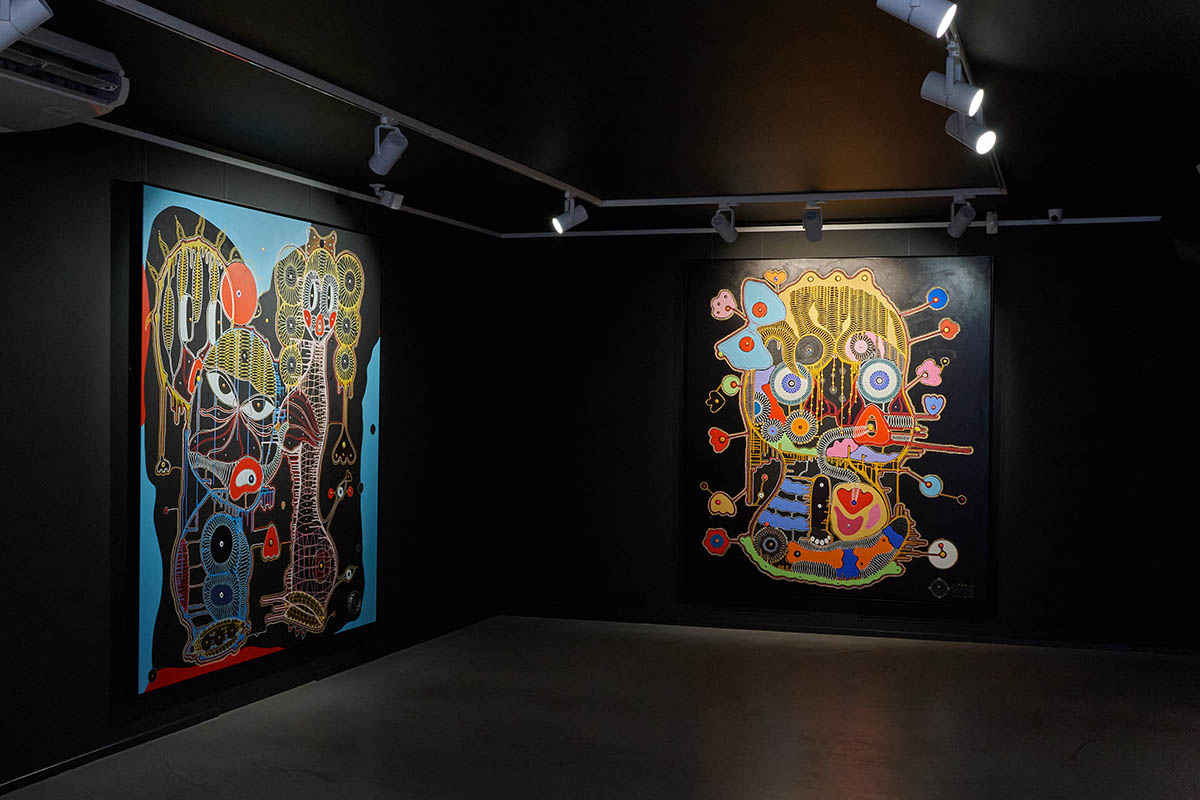
Men’s bodies in your painting are often depicted with the birds around them; why that?
Haha, I think it comes from “einen Vogel have. We all have it, but yeah, it also has this layer of humor in it, next to the critic. I guess my strong opinion on man is just coming from the period when I was painting those works, so it represents what was happening in my life, my experience, and my thoughts. My paintings are like this right now, and my topics will change over time. But babies are my favorite motive, and I will go on painting these.
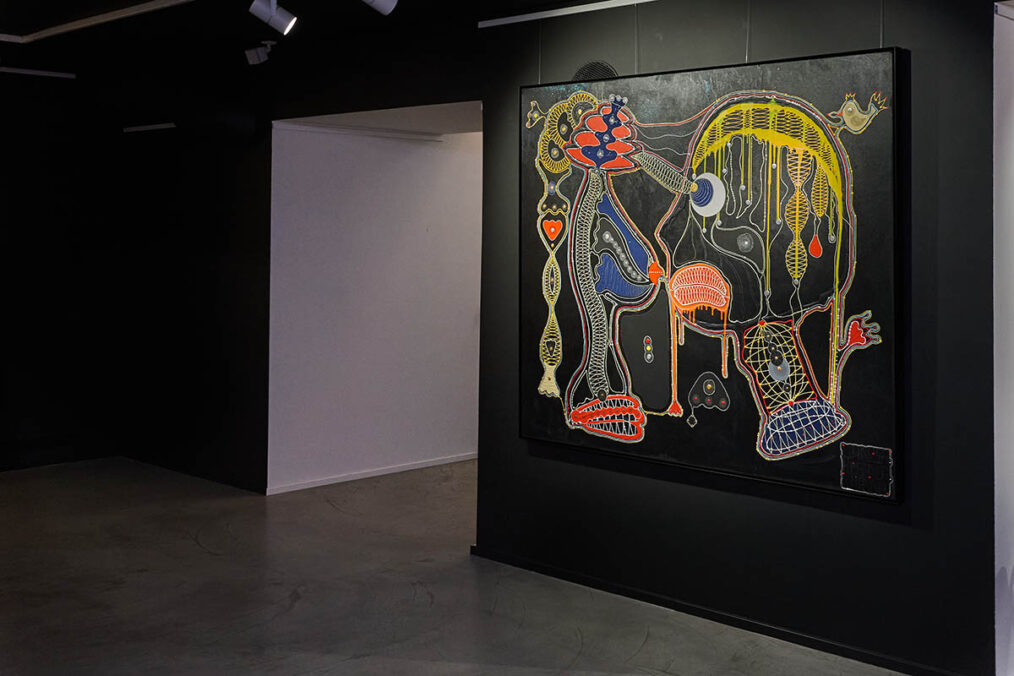
Even if some paintings from you, especially the ones in a smaller format, also seem a bit abstract, there is always a figuration in them.
Yes, there are also some body parts painted, like the kidneys, ribs, and so on. Also, in the uterus series this year, I will start going in that direction and have an interest in especially women’s organs and so on.
What was the moment, and how did it happen that you changed to a black canvas?
I wanted to try around with the black canvas because I tried painting on all kinds of surfaces, like whatever I could find, but mostly white, black canvas and jute stayed. So yeah, I liked how colors looked on a black surface, like the contrast.
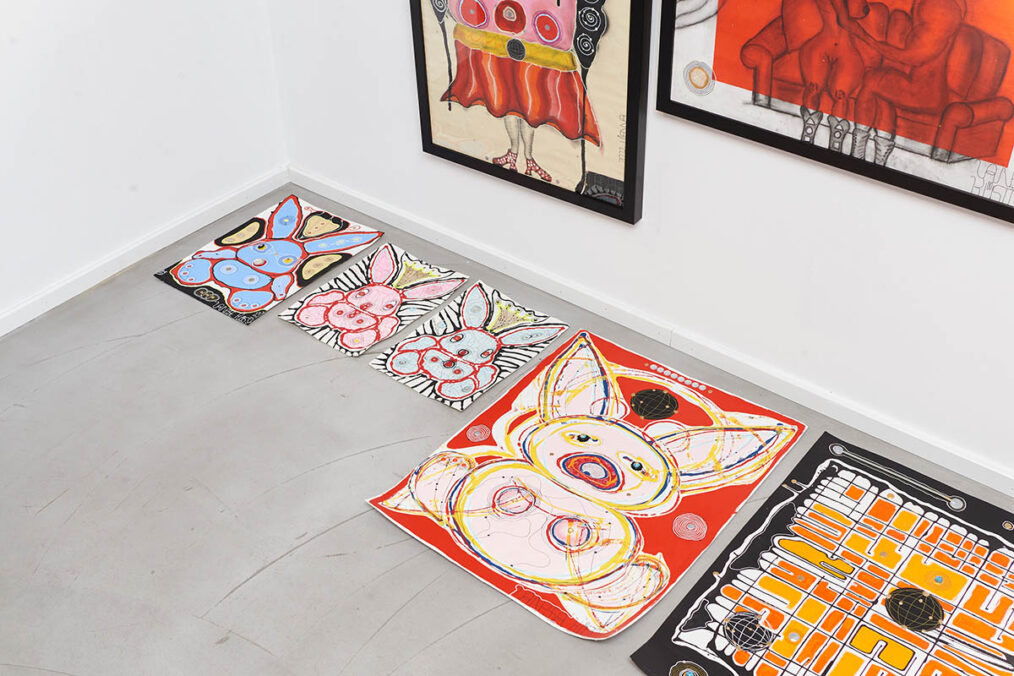
Tell us about the smaller works done on paper and cartons.
I also wanted to have some smaller paintings for the art collectors because it is easier to find space for them. I specifically like the work Haarausfall und Tränen (Hair loss and tears) from 2022. The work Amanita Muscaria, which means fly agaric fungi in Latin, is also from 2022, with the mushroom and the body. I think the title is fitting for the work; the body has a lot of muscles, and she looks like Amanita. The title plays a big role in my works, and I always take time to find and invent the right titles for my works. I like them short and not romantic. During painting, I have so many thoughts, so I try to reduce them into something that is easily communicated with viewers. Also, the Android series comes from the Greek word android, which refers to a machine or robot closely resembling a human in appearance and behavior. It is also something very emerging at the moment, especially with AI and technologies. I also painted the android bodies and android cells in a way that I imagined them. So the works are also touching on these futuristic ideas about how the technologies will develop in the next hundreds of years.
Which painting of yours is exhibited here at the moment that you would hang in your apartment, and why?
The Android Baby I did between 2023 and 2024.
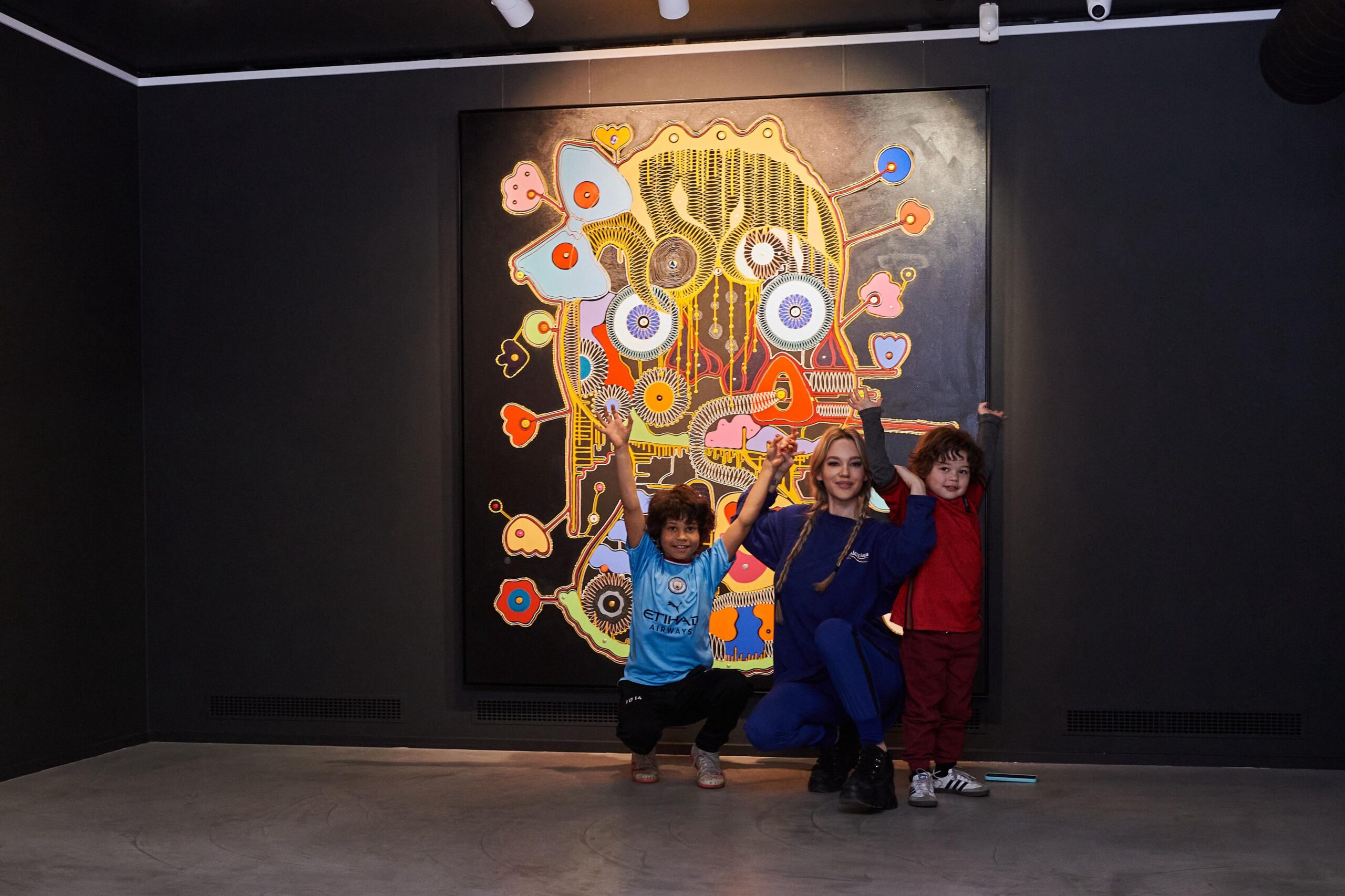
Lena, how did the collaboration with Vanessa go for you and the other gallery team members?
Lena: We got to know Vanessa two years ago. Back then, she casually showed us her art, and we were immediately impressed by her sophisticated visual language and saw a lot of potential in her. Now that we’ve opened the first solo exhibition, the response has been fantastic, and we are excited for further collaboration. Apart from her positive aura, Vanessa convinces her with her profound sense of art.
Lena, How do you interpret this body of work?
Lena: „Powerful Innocence“ is not only the title of the exhibition but also the central theme to which Vanessa passionately devotes herself. In a world often marked by prejudice and conventions, Vanessa explores the power of innocence and the strength hidden within it. Nearly every piece is an ode to femininity, to the capacity to give birth and flourish. Motifs like the womb and the embryo/baby are understood as the most primal places and symbols of creative force. The artworks are not only visually impressive but also a meditative reflection on the essence of power and innocence in an ever-changing world.
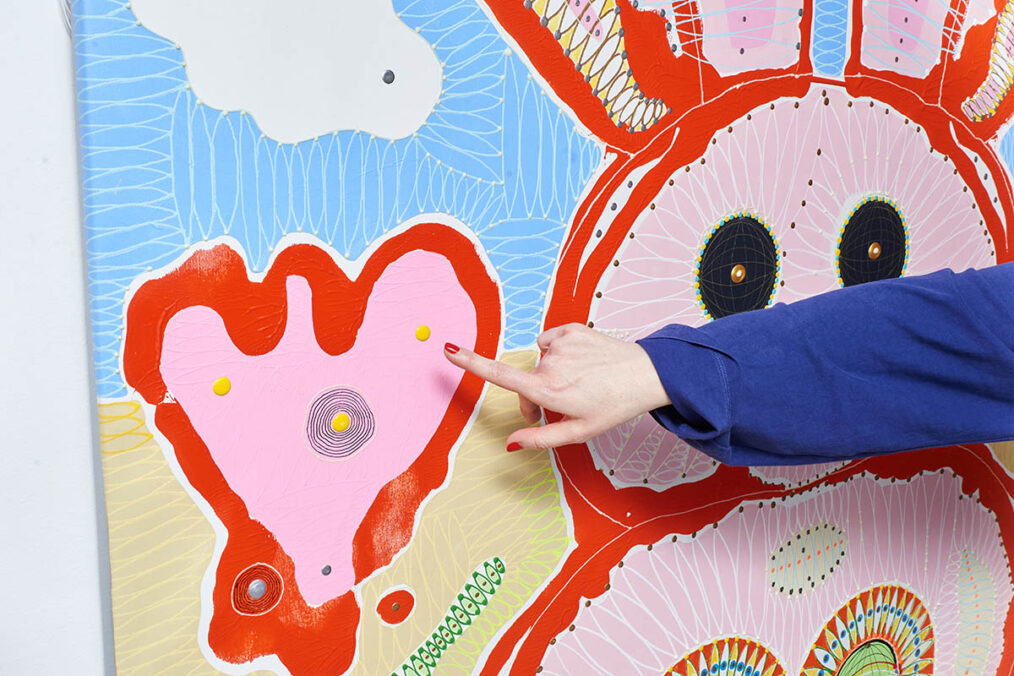
Lena, Can you tell us more about Galerie Gerald Hartinger? Other artists that you are presenting in the gallery.
Lena: We are a family-run business with two gallery spaces in the 1st district of Vienna, operated by father Gerald Hartinger and daughter Lena Heidrich. Gerald Hartinger Fine Arts (Seilergasse 9) focuses on the secondary market with an emphasis on American Pop Art, featuring blue-chip artists such as Andy Warhol, Keith Haring, Roy Lichtenstein, Jean Michel Basquiat, Tom Wesselmann, etc. with profound expertise in investment.
On the other hand, Galerie Gerald Hartinger deals more with young emerging artists like Vanessa Küstner, John Petschinger, Marc Jung, and Julia Benz, as well as established living artists such as, for example, Banksy and Mr. Brainwash.
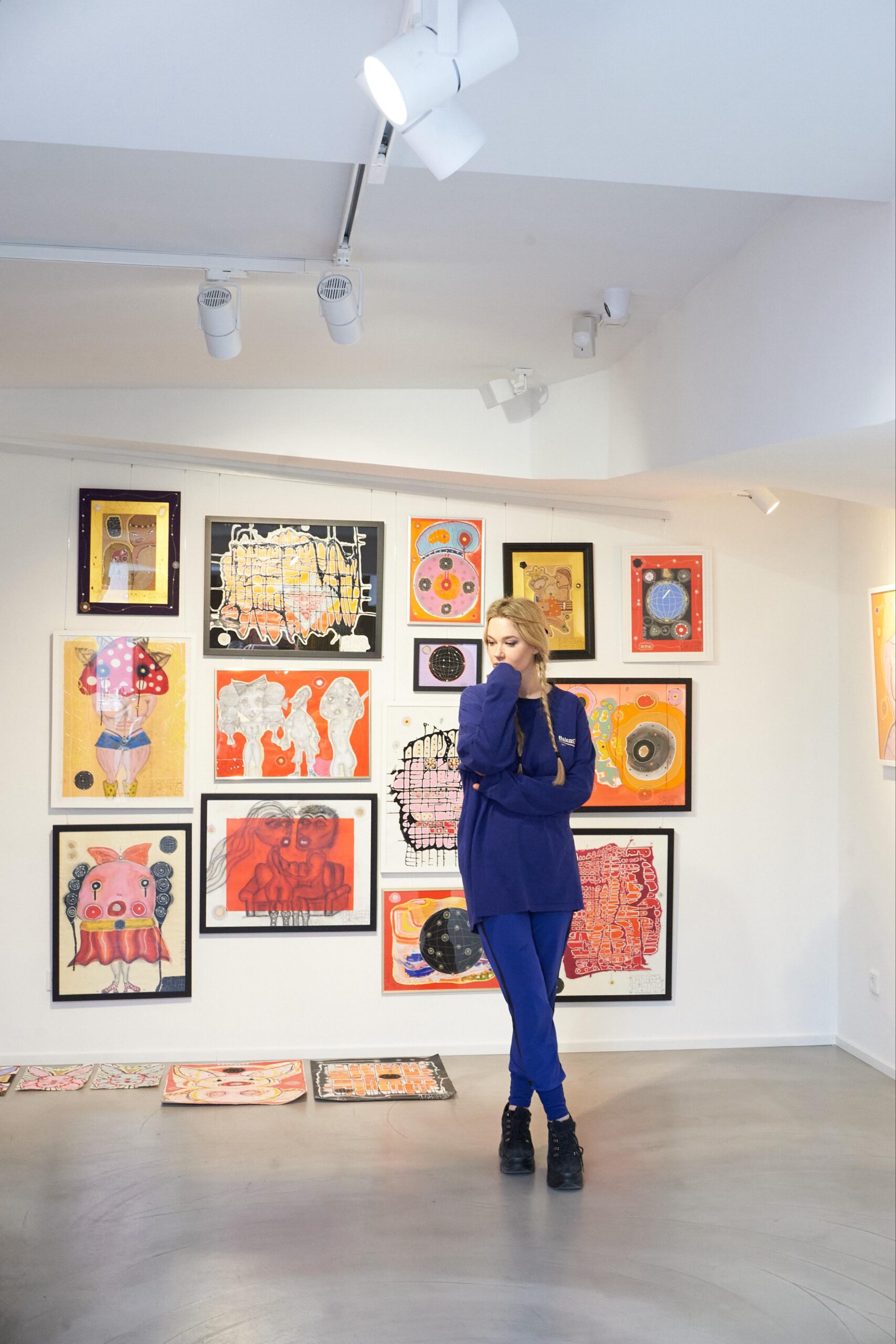
Upcoming Exhibition in Gallery Gerald Hartinger
Lena: In cooperation with the Calle Libre Festival, we are hosting a group exhibition featuring six international female street artists titled „Comm:unity“ (Opening April 25th by invitation only, open to the public April 26th–May 18th) in Spiegelgasse 21.
Exhibition: Vanessa Küstner “Powerful Innocence”
Duration: 22. March–19. April
Artist Talk with Marija Nujic, Saturday, April 13th, 2024, at 12 o’clock.
Location: Galerie Gerald Hartinger, Spiegelgasse 21, 1010 Wien, www.galerie-hartinger.at
Vanessa Küstner – www.instagram.com/vanessa_kuestner




